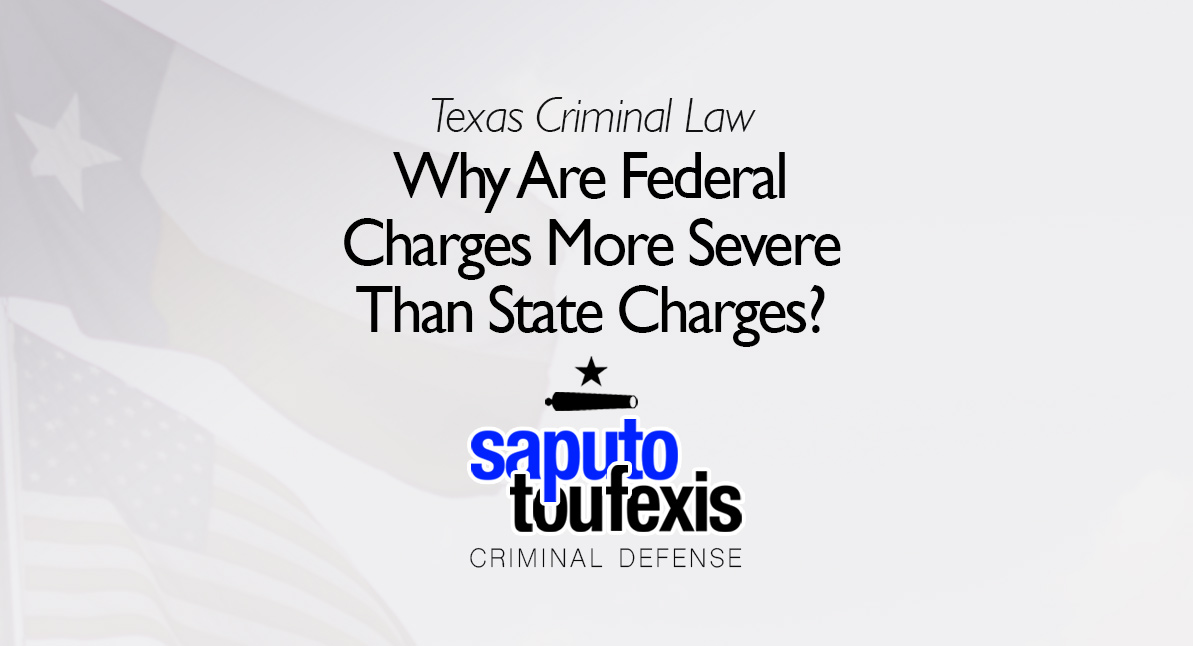The great majority of criminal trials involve state prosecutions for violations of state law. However, just as there are state laws against engaging in criminal behavior, there are also federal criminal laws passed by Congress. These laws exist to police federal or national issues, such as crimes that occur across state lines, internet crimes, federal tax fraud, or crimes committed on federal property.Federal offenses are prosecuted by government agencies such as the Federal Bureau of Investigation and can often carry penalties that are far more severe than those levied by state courts. If you’re under investigation by a federal agency or have already been indicted on federal charges, your future may be at stake. While it might not appear like an important distinction, there are significant differences between state and federal charges. Learn more about their distinctions and how you can protect yourself if you’re facing federal charges.
What Is the Difference Between Federal Crimes and Texas State Crimes?
Federal crimes are offenses that are described by the United States Code—a document composed of laws passed by Congress—while state crimes are offenses that are described by state criminal codes. In Texas, the most common source of state codes describing offenses is the Texas Penal Code. Title 18 of the United States Code is the portion of federal law that deals specifically with federal criminal law.Federal and state crimes also differ based on the agencies that are responsible for investigating and prosecuting them. The enforcement of all federal law is ultimately the authority of the President of the United States. The President delegates this law enforcement responsibility to federal investigative agencies such as the FBI, Secret Service, Bureau of Alcohol, Tobacco, Firearms and Explosives, Department of Homeland Security, and the Securities and Exchange Commission. As a practical matter, many of these agencies seek and receive cooperation from local and state law enforcement agencies.Another difference between these crimes is the courts they’re prosecuted in. Federal criminal trials are held in federal district courts, whereas state criminal trials are held in state courts. Some criminal acts are crimes only under federal law, but many criminal acts such as bank robbery are crimes under both federal and state law and may be prosecuted in either federal or state court.
What Makes Federal Charges More Severe Than State Charges?
Federal charges, for the most part, carry harsher penalties than state charges. The reason these indictments often involve more severe consequences is that federal or national interest is at stake. It’s important to note, however, that the penalties levied against you depend on the exact offense with which you’ve been charged and that federal charges don’t always result in a harsher penalty. Nevertheless, the majority of convictions for federal charges result in longer prison terms, heftier fines, and other additional statutory penalties.In particular, federal drug crimes carry harsh mandatory minimum sentences. Individuals convicted of federal crimes and sentenced to prison will go to federal prison, rather than state prison.In addition, because the federal government typically has more staff and resources to commit to a case, federal prosecutions can be very difficult to defend. It’s not uncommon for state prosecutors to sometimes overlook evidence that a federal prosecutor normally wouldn’t.
What Are the Most Common Federal Charges?
There are hundreds of federal criminal charges, all of which are listed under Title 18 of the United States Code. Here are some of the most common federal crimes:● Money laundering● Weapons charges● Drug trafficking and distribution● White-collar crimes● Internet crimes● Child pornography● Credit card fraud● Identity theft● Tax evasion● Arson● Sexual assault● TrespassingWhen considering the professional pedigree of the prosecution and judges found within the federal system, it’s imperative for accused individuals to retain an equally aggressive defense to maximize their chances of securing a desirable outcome. After your arrest, it’s important that you get in touch with an experienced Dallas federal criminal defense lawyer as soon as possible.
Contact the Saputo Toufexis | Criminal Defense to Fight Your Federal Charges
To navigate your case properly, you’ll need the assistance of an expert federal criminal defense lawyer. At the Saputo Toufexis | Criminal Defense, we go to extraordinary lengths to protect your rights and challenge the evidence against you. Our legal team will handle every aspect of your case while making use of cutting-edge forensic technology and innovative defense strategies. You can be confident in our ability to protect your legal rights.After your arrest, our firm will discuss with you the facts and circumstances surrounding your case and together we’ll work toward potentially reducing or completely vacating any penalties associated with the crime. Our highly trusted and well-versed legal team understands the ins and outs of federal defense law and will be with you every step of the way.









